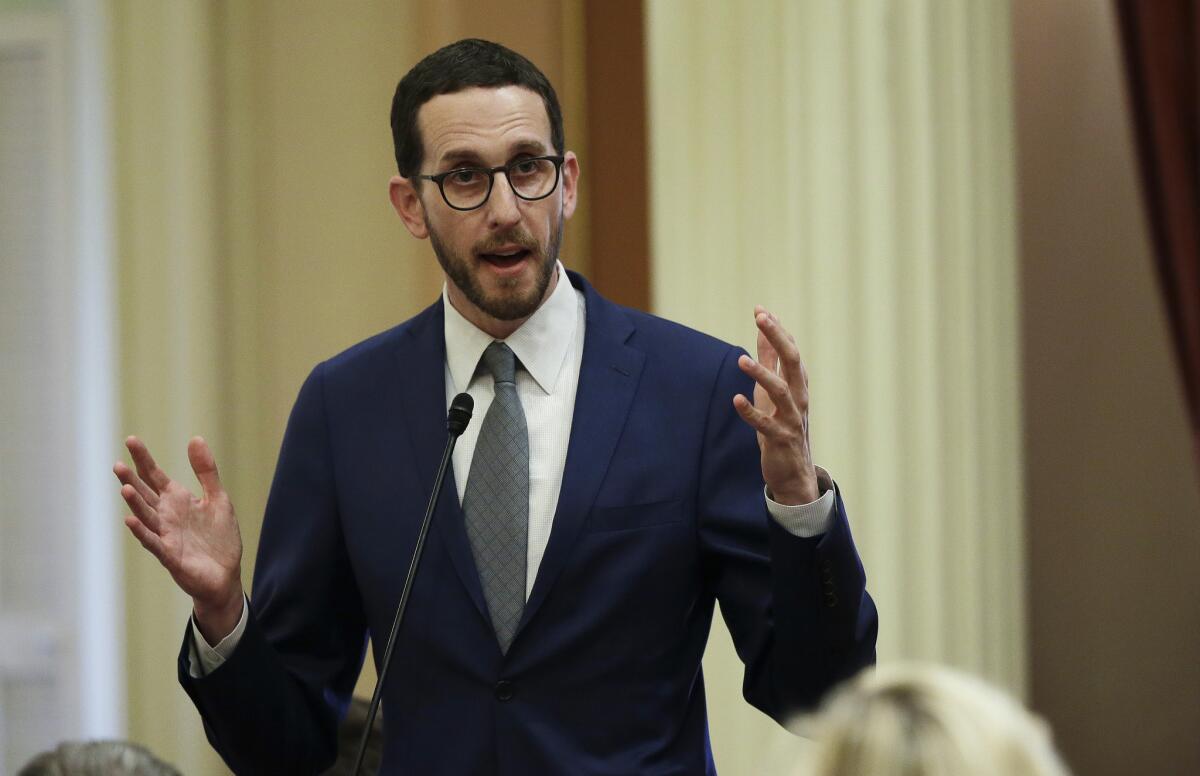Legislation to ban surgery on intersex children fails in California Senate committee

SACRAMENTO — A bill to ban medically unnecessary surgeries on young children born with atypical genitalia failed its first vote in the California Senate on Monday, despite supporters arguing that the legislation is key to protecting the rights of intersex people.
Advocacy groups for intersex people, who have differences in their reproductive or sexual anatomy, have been seeking legislation in California that would postpone genital surgeries, which they say do more harm than good. The groups say infants born with atypical genitalia often undergo surgeries to “normalize” their body, which can lead to incorrect gender assignment or an irreversible loss of physical sensation.
Senate Bill 201 by state Sen. Scott Wiener (D-San Francisco), would have required that a child be at least 6 years old before a doctor could perform genital surgery that is not medically necessary. The bill faced opposition from doctors who said medical decisions should be left up to parents and the physicians treating a patient.
The bill failed in the Senate’s Business, Professions and Economic Development Committee, garnering just two ayes from the nine-person panel. Committee Chairman Sen. Steven Glazer (D-Orinda) expressed concerns over the broadness of the bill and the potential for unintended consequences. The bill failed when three senators led by Glazer declined to vote on it.
“I’m deeply disappointed that the committee rejected the bill,” Wiener said after the vote. “This is a civil rights, a human rights piece of legislation, and California should be leading on protecting the rights of sexual minorities and gender nonconforming people. This sends a negative message when California rejects this kind of bill.”
Wiener first introduced SB 201 last year but shelved the bill when it became apparent it would die in Glazer’s committee. The bill originally called for a ban on all genital surgeries that are not medically necessary until a child is old enough to provide informed consent. But the bill drew criticism because it did not make clear the age at which a child is old enough to consent, prompting Wiener to amend the legislation to say a child must be at least 6 years old before a doctor can perform cosmetic genital surgery. Wiener said a 6 yearold is old enough to express feelings so that a parent can make a more informed choice for the child.
“We would have been criticized no matter what age we put in the bill,” Wiener said.
Within the intersex community, there also isn’t a consensus on how old a person should be to consent to surgery. Advocates say there is a delicate balance to be struck between ensuring a minor is old enough to make the decision without pressure from parents, doctors or peers and avoiding forcing all kids to wait until after puberty.
The bill was opposed by the influential doctors’ lobby, the California Medical Assn., as well as the California Psychiatric Assn. and the California Urological Assn.
“This bill doesn’t just impact the few rare intersex cases, but instead treats routine and complex cases equally,” said Hillary Copp, a pediatric urologist at the University of California, San Francisco’s Benioff Children’s Hospital. “In doing so, the bill removes all flexibility from trained medical professionals and loved ones to do what’s in the best interest of patients.”
More to Read
Sign up for Essential California
The most important California stories and recommendations in your inbox every morning.
You may occasionally receive promotional content from the Los Angeles Times.











